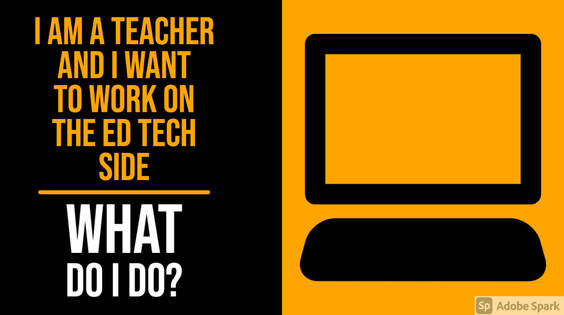|
I get asked a decent bit by teachers what it is like to work at an ed-tech startup and how I can make that transition. With nearing three years under my belly at Tynker, I figured it was a great time to give some advice and tips about what life is like and how to move into a position like mine. It’s an intense environment, but it’s one I have grown to love.
I think the first thing to look for is to find the right company. Obviously, many people want to work for Apple, Google, and Microsoft, making those positions hard to get. While there are great benefits working at one of the big guys and more power to you if you can get those positions, I simply prefer for the moment to work for a company where I can experience exponential growth, and I can make more of an impact in what I do. I came to Tynker first and foremost because I believed in the mission. I saw one member of the education team at Google speak a few years ago, and he said something to the effect of, “ not everyone needs to be a programmer, but everyone will need to understand how code works.” To me, that put it perfectly, why I am at Tynker. With the way the world is moving, we need to give every kid the opportunity to code, and I think Tynker is the best place to do that. You won’t find any other site that is easier for teachers to use, has core curriculum lessons to code in any class, and goes all the way K-12. To me, that’s magic I can work with. The second thing to look for is the proper position. The tricky thing is that actual teaching and PD positions in the field are somewhat limited. No matter where you are (big or small), revenue is going to come first. That means the more accessible positions to grab usually are sales roles, and you may have to start there to get your foot in the door. I did. I wasn’t great at it, but I would not be where I am without taking that risk. Selling is an art, and if you are a people person, you may make that transition well. I am, unfortunately, a bit awkward in initial one on one interactions. I am not super comfortable just going up to a person and introducing myself. I am fine in front of big groups and fine when someone comes to me first, but I don’t do super well initiating. That was my downfall in sales, but what I did do was show enough initiative, smarts, and ideas on education that they kept me around. From there, my role grew with hard work, and if you chose the right company, you could have similar circumstances. Of course, you could also be successful in sales (I have a friend who made that transition.) The third thing to know going in is that this job and way of life is not for everyone. Startups are intense, and at times can be stressful. The biggest reasons companies grow their workforce is to continue that division of labor as you grow your customer base. That means that when you’re small, it can be challenging, and you do many different tasks. For me, that’s great. I love that my hand is in so many pots, and I can directly see my influence on things. The workload and intensity don’t bother me (although there have been times I have had to grow into.). If you like being comfortable, though, it may not be for you. It’s something to do some soul searching on before you take a position. If you are thinking about making the transition, the rewards can be huge. It just takes buckling down and doing the work to get there. I love what I do as I get to affect teachers and students worldwide and affect a [product I truly believe in. If you feel like you can get to that place, it’s definitely worth the jump. If you still have questions, you can always email me at [email protected].
0 Comments
Leave a Reply. |
Archives
January 2023
Categories |

 RSS Feed
RSS Feed
